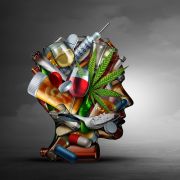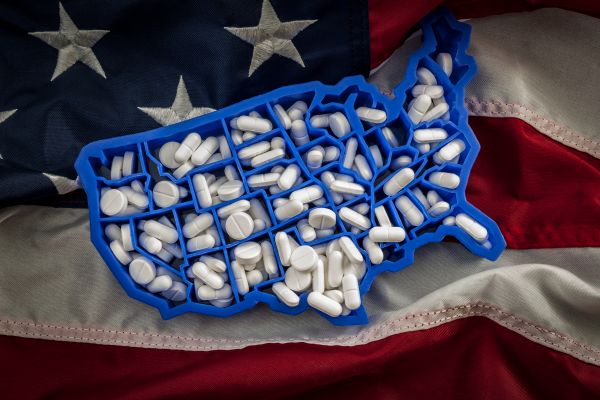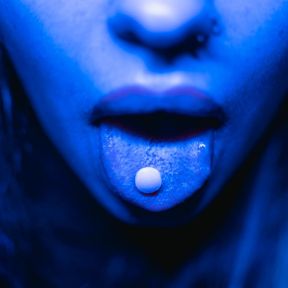
Medical Detox
Most people who struggle with substance use will build a tolerance to and become physically dependent on their drug of choice. Stopping cold turkey can be difficult and, in some cases, life-threatening. A medically supervised detoxification is often the first step in treating addiction.

In medical detox, physicians and nurses carefully supervise the patient as they are gradually weaned from the substance. Certain medications are used to temporarily prevent or ease the symptoms of withdrawal, which can include headaches, nausea, vomiting, fever, and more. Patients often see improvement after medical detox. Nevertheless, without continuing treatment at a drug rehabilitation facility, as well as further education and counseling, patients may relapse into addiction.
“Detoxification” means to remove harmful substances from the body, primarily with the help of the liver. A detox can be metabolic, requiring a person to fast and then add back in a strict diet of clean foods and water; however, there’s little evidence to suggest that detox diets actually work. Medical detoxes are frequently used to treat people with addictions. Supervised by medical professionals, these detoxes allow individuals to reduce their withdrawal symptoms long enough for their bodies to adjust to life without alcohol or other addictive substances.
In a medical detox, physicians supervise a patient’s withdrawal from alcohol or another addictive substance, either on an inpatient or outpatient basis. They watch closely for withdrawal symptoms, which they manage with medications and various supportive therapies. A medical detox can reduce the dangers of withdrawal from a substance the body has grown dependent on or addicted to. Medical detox is the first step in addiction treatment, and it should be followed by education, therapy, and other long-term support measures.
The length of a medical detox varies depending on individual factors, such as what drug was abused and how long, as well as the patient’s medical history. While a typical detox will last anywhere from three to 14 days, some patients can experience symptoms for weeks or months before achieving a full recovery.
Patients who are deprived of alcohol or another substance to which their body has grown dependent will experience a range of withdrawal symptoms that vary in intensity. Some common examples include fevers, headaches, irritability, muscle pain, nausea/vomiting, anxiety, depression, fatigue, insomnia, rapid heartbeat, high blood pressure, seizures, and tremors.
Prescribed medications like methadone, buprenorphine, disulfiram, naltrexone, and acamprosate can help reduce cravings, alleviate withdrawal symptoms, and prevent relapse when used with proper supervision.
It’s common to experience anxiety during a medical detox. Withdrawal from alcohol or another substance can trigger worried thoughts and many of the same symptoms as a panic attack. Many people use substances to help them cope with difficult feelings and fail to learn healthier emotional regulation strategies. As a result, anxiety and withdrawal can turn into a vicious loop that a patient may need professional help breaking during detox.
Depressive feelings are a normal part of withdrawal, along with a fear of forever losing the thrill and emotional high that alcohol or a substance provided. This natural letdown is your body’s way of seeking a new balance without drugs or alcohol, and your mood should even out as you get past the withdrawal phase. If you find that your depression continues after a few weeks, seek the help of a professional therapist.
Many people experience fluctuations in mood as they go through withdrawal. They might despair that they will ever be free of their addiction or feel an overwhelming urge to run away. But if they can stay strong with the help of medical supervision, their mood swings are likely to abate, along with the other withdrawal symptoms.
Some people may try to treat addiction on their own by using an at-home drug detox kit, particularly if they have an urgent need to pass a urine drug test. Very little is known about how effective these detox kits are; however, while some of these kits may return negative drug test results, they can also have a range of side effects, from changing the color of the patient’s urine to gastrointestinal problems to paranoia and hallucinations. People who try detox kits may also experience heavy withdrawal symptoms and cravings, and they are often ill-equipped to deal with these effects without the help of a medical professional.

Not everyone with a substance use problem requires medical detox before entering a drug rehabilitation program, but those who have a physical dependency on a drug, or who would be risking their health to attempt to quit on their own, may benefit from beginning their addiction treatment with it.
While detoxification helps to eliminate the physical symptoms of addiction, most patients will need additional medical and psychological assistance. Quitting a substance doesn’t address the underlying causes of the initial addiction, which could be genetic, environmental, or behavioral. Also, there may be changes in brain chemistry as a result of long-term substance abuse that need to be addressed. Recovery usually involves treating the patient's mind as well as their body.
Medical detox clears the alcohol or drugs from your system so that your body can begin healing. While stopping cold turkey at home on your own may sound like the easiest solution, it’s usually not the safest or most effective option. Detoxing ensures that trained medical staff are monitoring your withdrawal process and can step in to alleviate your discomfort and treat more severe symptoms before they endanger your life.
Asking for professional help, getting informed about your addiction and treatment options, seeking out people who support you, and having a hopeful attitude are key to your recovery. If you’re aware in advance of how the withdrawal could negatively affect you physically and emotionally, then you will be more likely to follow through on it and come out the other side. Most people who are in recovery have a more positive attitude and feel like they lead fuller, healthier lives.
When you arrive, medical staff will evaluate you and screen for any mental health disorders or physical ailments. They will develop a personalized addiction treatment plan based on your history and substance usage. They will monitor and respond to withdrawal symptoms after you discontinue alcohol or substance use, until you are stabilized. Once you are stable, they will recommend further education and longer-term support solutions.
Because you are going through withdrawal. Your body is reacting to being abruptly deprived of a substance upon which it had grown dependent. Detoxing can trigger both physical and emotional symptoms that range from irritating to life-threatening.

A medical detox clears the body of all traces of the substance it has grown dependent on to function normally. As a result, the person detoxing will experience mild to severe withdrawal symptoms that may last several weeks. Afterward, they will need to follow a clear treatment plan that provides ongoing support and resources to ensure that they don’t slip back into old habits. Detoxing can be a fresh start on the way to establishing healthy goals and reconnecting with loved ones.
In many ways, connection is the opposite of addiction: Secure, supportive relationships can be a protective influence against becoming addicted in the first place, and they can also play an important role in recovery. Start with a small group of people you can trust to be empathetic and helpful; these may include other addicts in recovery who understand what you are going through along with a select group of friends and family with whom you are comfortable.
Finding a good addiction treatment program can be difficult. Seek out programs that offer a comprehensive assessment, which includes looking for co-occurring mental health problems, an integrated treatment approach, a clean and respectful environment, evidence-informed practices, qualified and supportive staff, and significant other/family involvement in treatment. High-quality programs also often have outside accreditation and the ability to connect you to longer-term resources and ongoing support. Visit Psychology Today’s Treatment Center Directory to find a medical detox facility near you.
It’s hard to watch someone’s life spiral out of control due to an addiction, and loved ones often find themselves stuck in enabling patterns that they need to break. When this happens, it’s common to stage a therapeutic intervention, during which a small group of trusted individuals confront the person about their destructive behavior and encourage them to seek professional help for their addiction. An effective intervention will outline the consequences for what will happen if the person with the addiction does not seek treatment.














